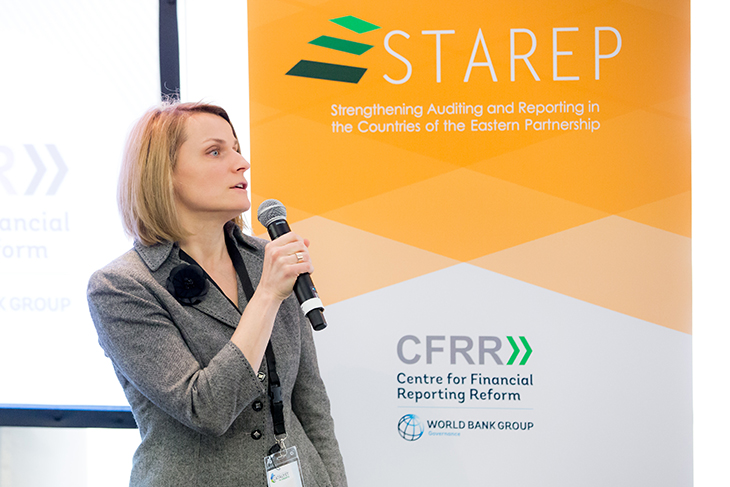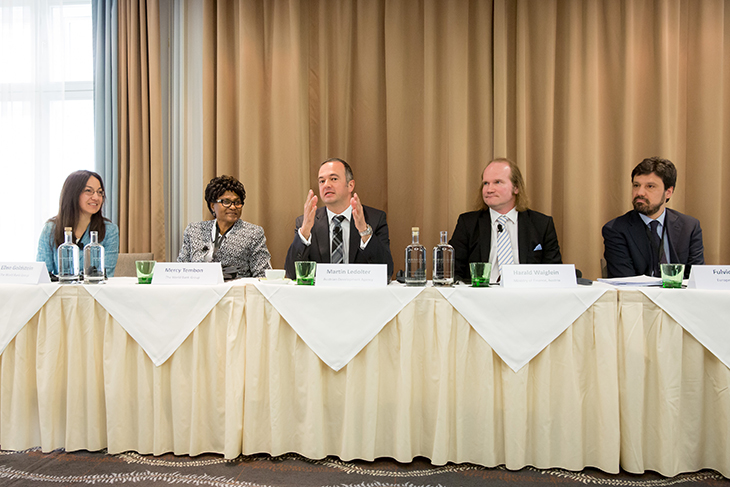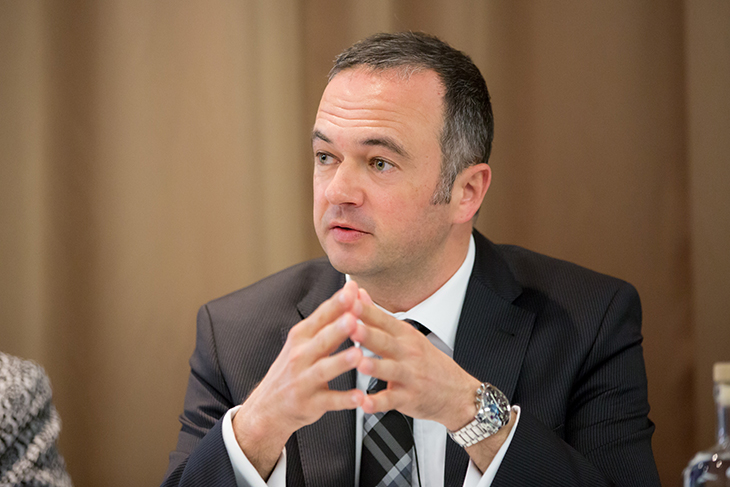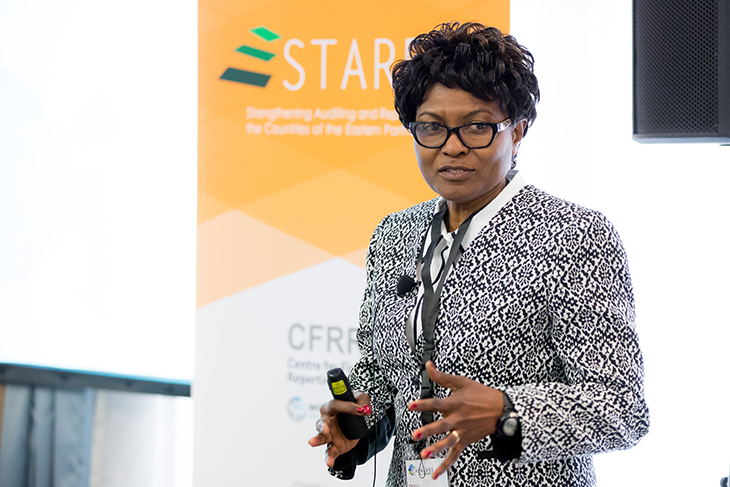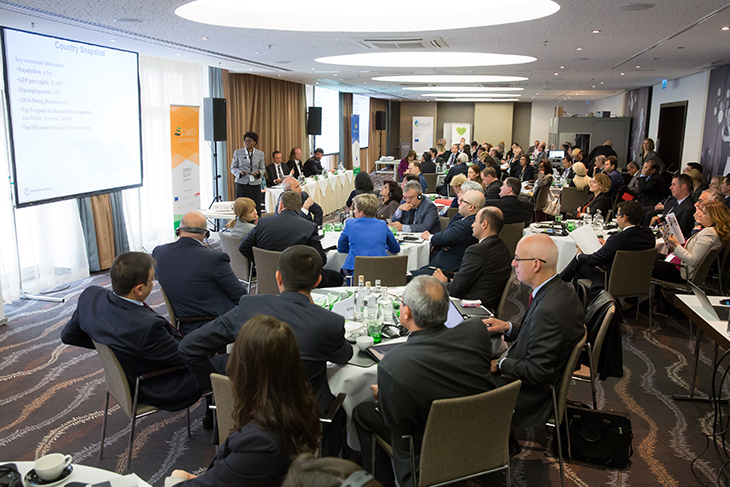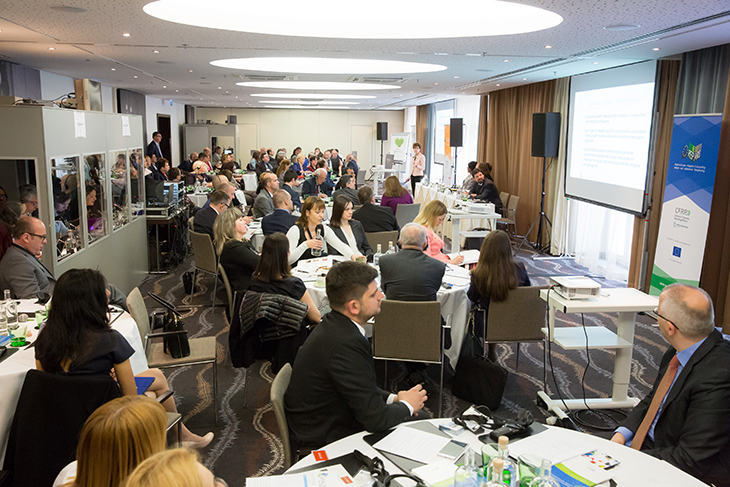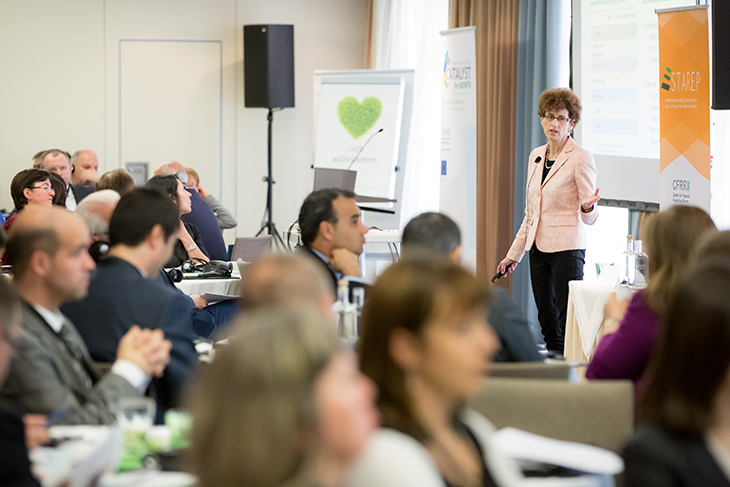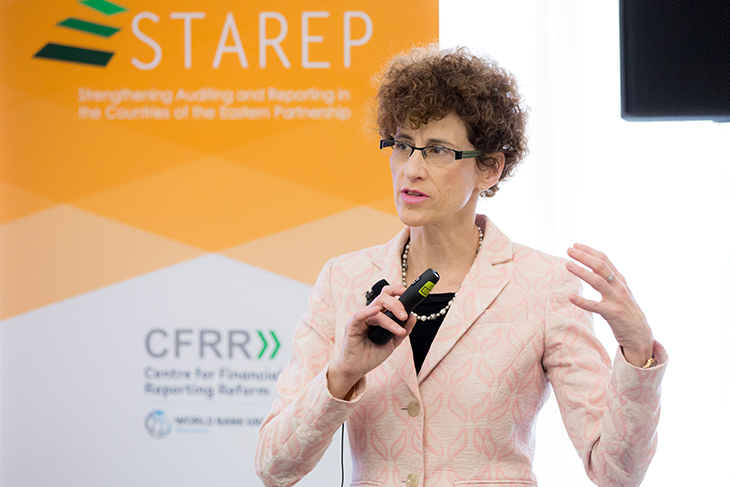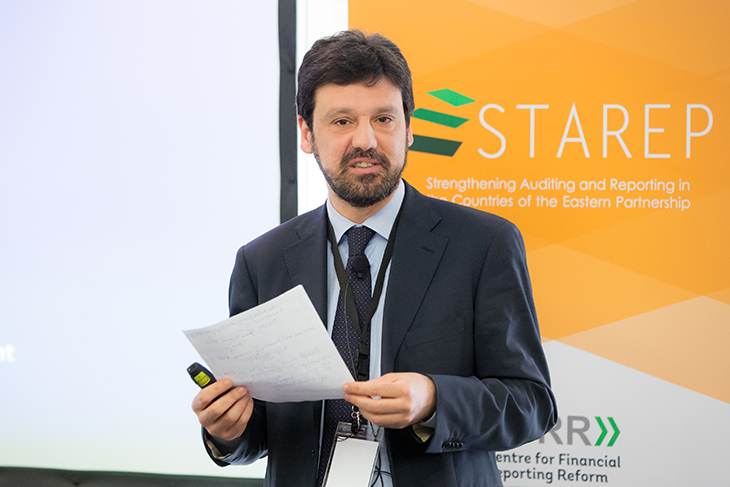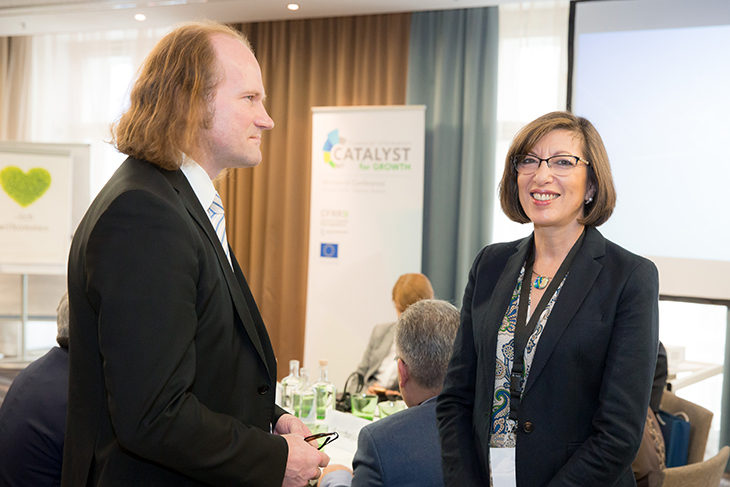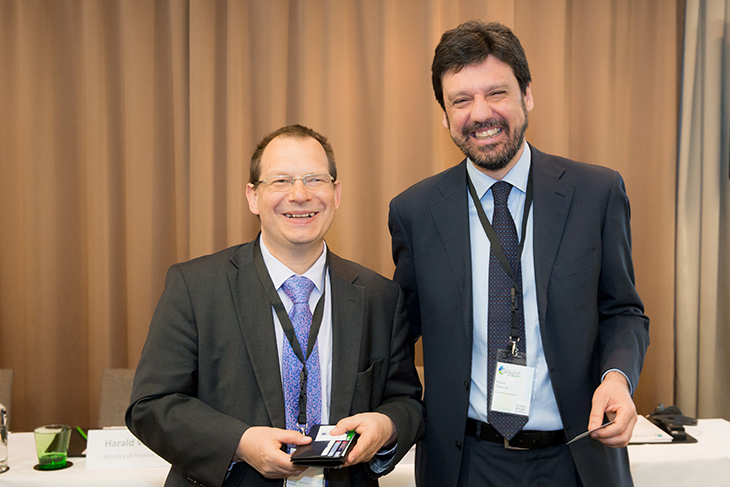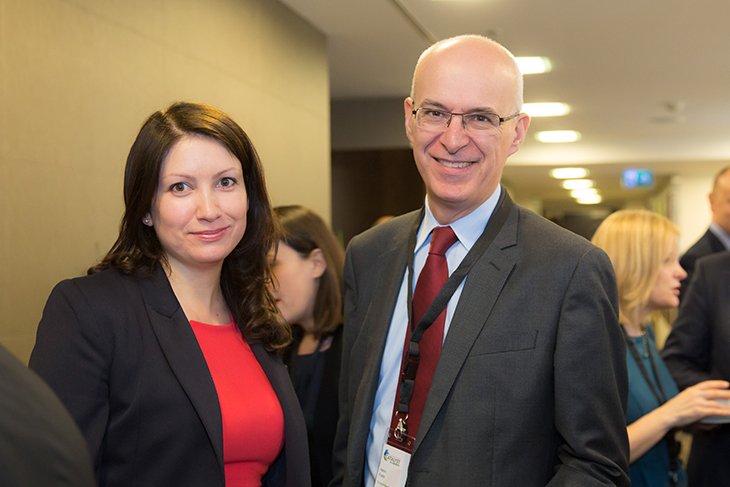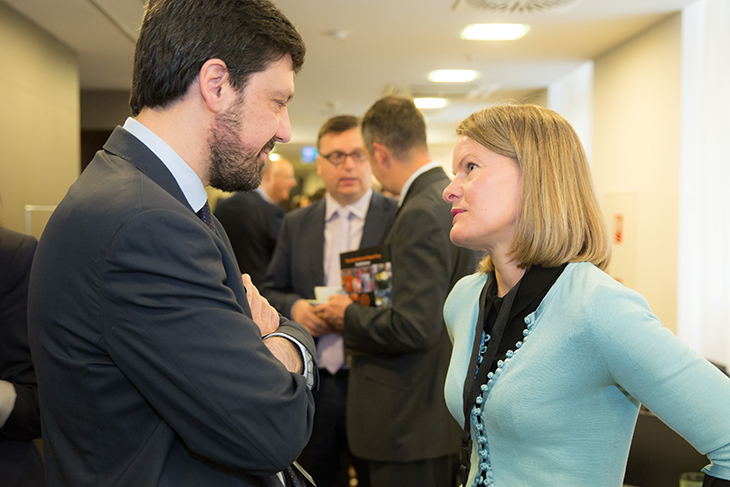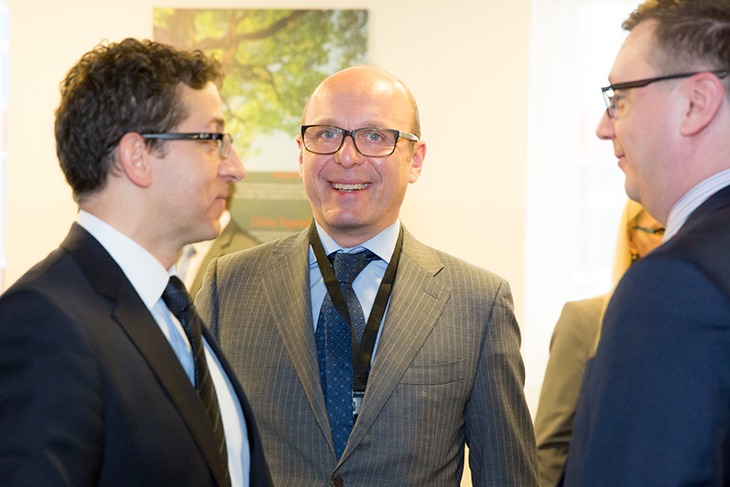Building trust in financial information, improving access to credit, and attracting investment
On 26 April 2016, around 100 senior officials leading accounting and auditing reforms in countries taking part in two programs being implemented by the Centre for Financial Reporting Reform (CFRR) converged in Vienna, Austria. The purpose of this Senior Officials’ Workshop was to share reform progress and exchange experiences of recent initiatives in the area of accounting and auditing within the programs: the Road to Europe: Program of Accounting Reform and Institutional Strengthening (EU-REPARIS); and Strengthening Auditing and Reporting in Countries of the Eastern Partnership (STAREP). The workshop also took a broader look at a number of key cross-cutting issues and considered the impact of financial reporting on economic development.
“Giving investors transparent reliable financial information is the best thing you can do for economic growth,” said Harald Waiglein, Director General for Economic Policy and Financial Markets, Austrian Ministry of Finance, in his welcoming address. This viewpoint was reiterated by Fulvio Capurso, Programme Manager, Directorate-General for Neighbourhood and Enlargement Negotiations, European Commission, who provided an overview of EU support to private sector development in the region.
Stressing the importance of building trust in financial information, Martin Ledolter, Managing Director of the Austrian Development Agency, also described how EU-REPARIS and STAREP are facilitating interregional learning by bringing representatives from both regions together to exchange experiences.
Unreliable financial information can restrict access to finance
Mercy Tembon, Regional Director for the South Caucasus at the World Bank, presented some of the perspectives and developmental priorities in the region, explaining that the lack of credible and trustworthy financial information is restricting access to finance in some countries in the South Caucasus. Ellen Goldstein, Regional Director for Southeast Europe at the World Bank, outlined the priorities of the broad policy agenda to enable Western Balkan countries to catch up with the EU, namely: improving the transparency of public finance; establishing dialogue between governments and citizens; raising the accountability of all businesses; and simplifying the regulatory requirements and reporting for small and medium-sized entities.
The heads of each country delegation summarized the challenges and priorities for financial reporting reform in their respective countries, especially regarding progress in 2015. One of the most common challenges relates to implementing public oversight and bringing institutions and legislation in line with the EU acquis communautaire.
Helping to boost economic growth
In a session showcasing some of the success stories from the region, participants learned how high-quality financial information has made a significant contribution to attracting financing, improving investment profiles, and enabling businesses to grow. Elena Voloshina from the International Finance Corporation (IFC) explained that “International Financial Reporting Standards (IFRS) allow companies to access IFC funds, improve operating and cost efficiency.” Alex Lissitsa, Executive Director and CEO of the Industrial Milk Company, Ukraine – one of the top 10 agricultural companies in Ukraine — stated that: “IFRS provide us with a benchmark to compare ourselves with other international companies.” Murtaz Kikoria, CEO of the Bank of Georgia, the largest commercial bank in the country, declared that without transparency and full disclosure, you cannot raise equity. “Good governance is the key to our success,” he concluded.
World Bank staff outlined the need for tax and accounting simplification, and explained how auditors’ reports are moving towards greater transparency and more integrated reporting, and are also becoming more informative. Helmut Maukner, who heads the working group for amendments to the Austrian company law in accordance with the EU Audit Regulation, shared Austria’s experience with public oversight.
Investor trust leads to stronger capital markets
Alain Deckers, Head of Unit, Audit and Credit Rating Agencies, DG FISMA at the European Commission, provided an overview of EU audit reform, describing the key pillars of reform as: enhancing transparency; strengthening auditor independence; enhancing supervision; and fostering market diversity. “Robust audits are a key component of confidence in financial markets. Investor trust leads to stronger capital markets,” he stressed.
During the course of the workshop, the main challenges identified by participants were:
- The need to establish a special framework for small and micro entities to report on their financial performance. This framework should reduce the administrative burden and simplify the way in which they conduct business;
- Enforcement challenges after the laws have been passed by countries in the region; and
- Capacity constraints at all levels, including the preparers of financial statements, the accountancy profession, regulators and standard setters.
Significant progress made in financial reporting reform
Closing the workshop, Henri Fortin, Global Lead, Corporate Governance and Financial Reporting at the World Bank, praised the progress and achievements made over recent years and acknowledged the European Commission for the pivotal role it has played in making these successes possible.
